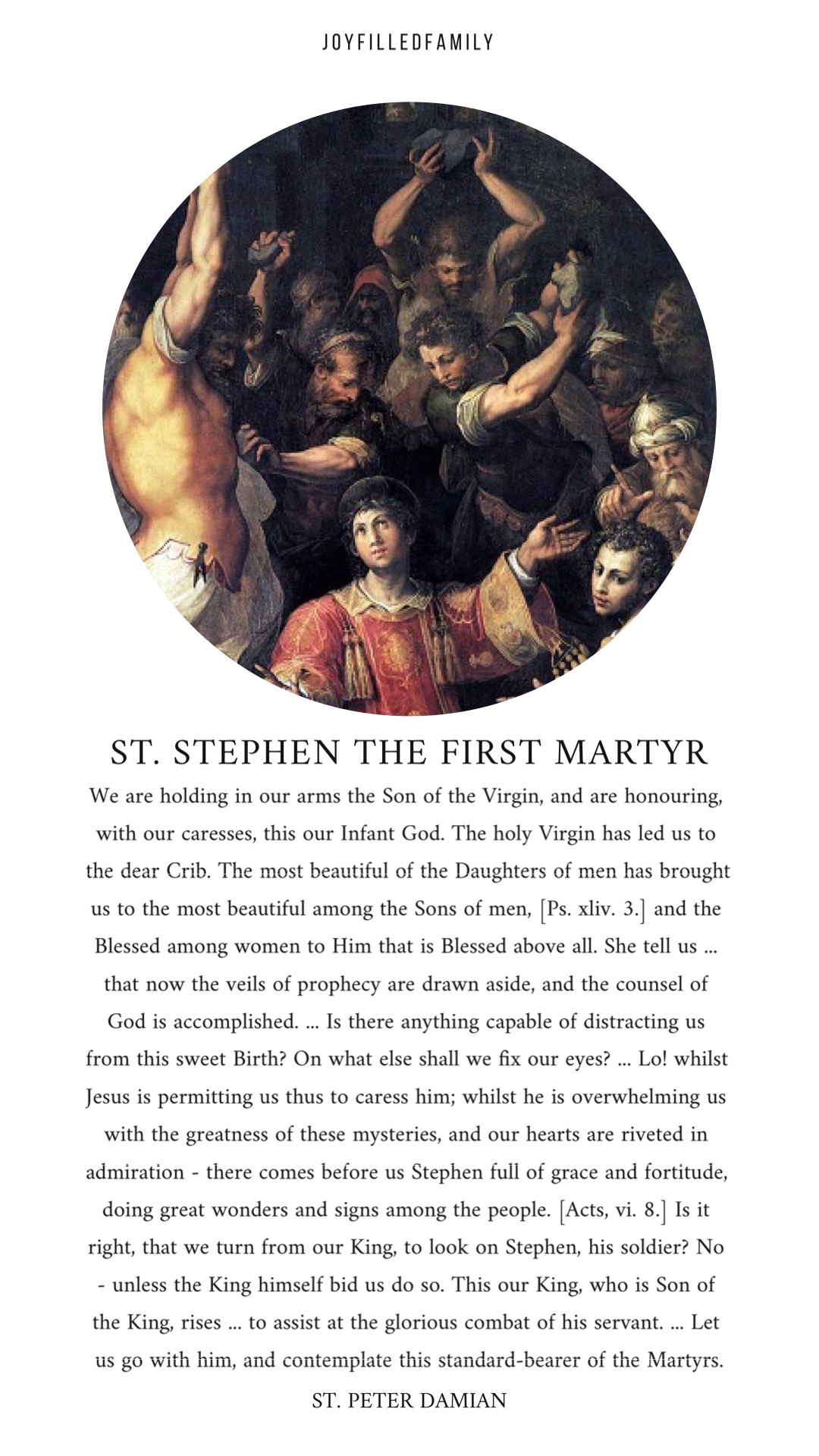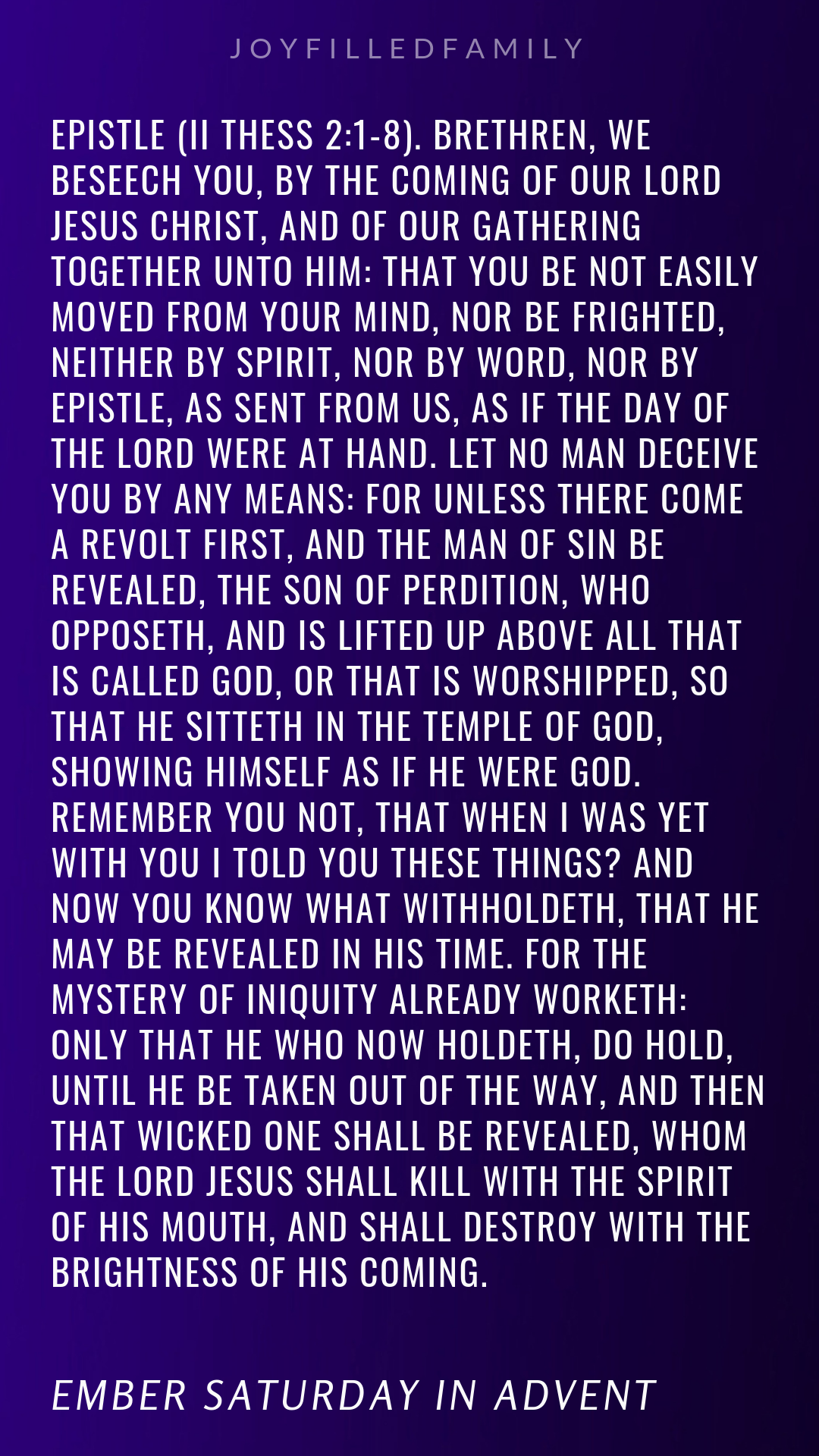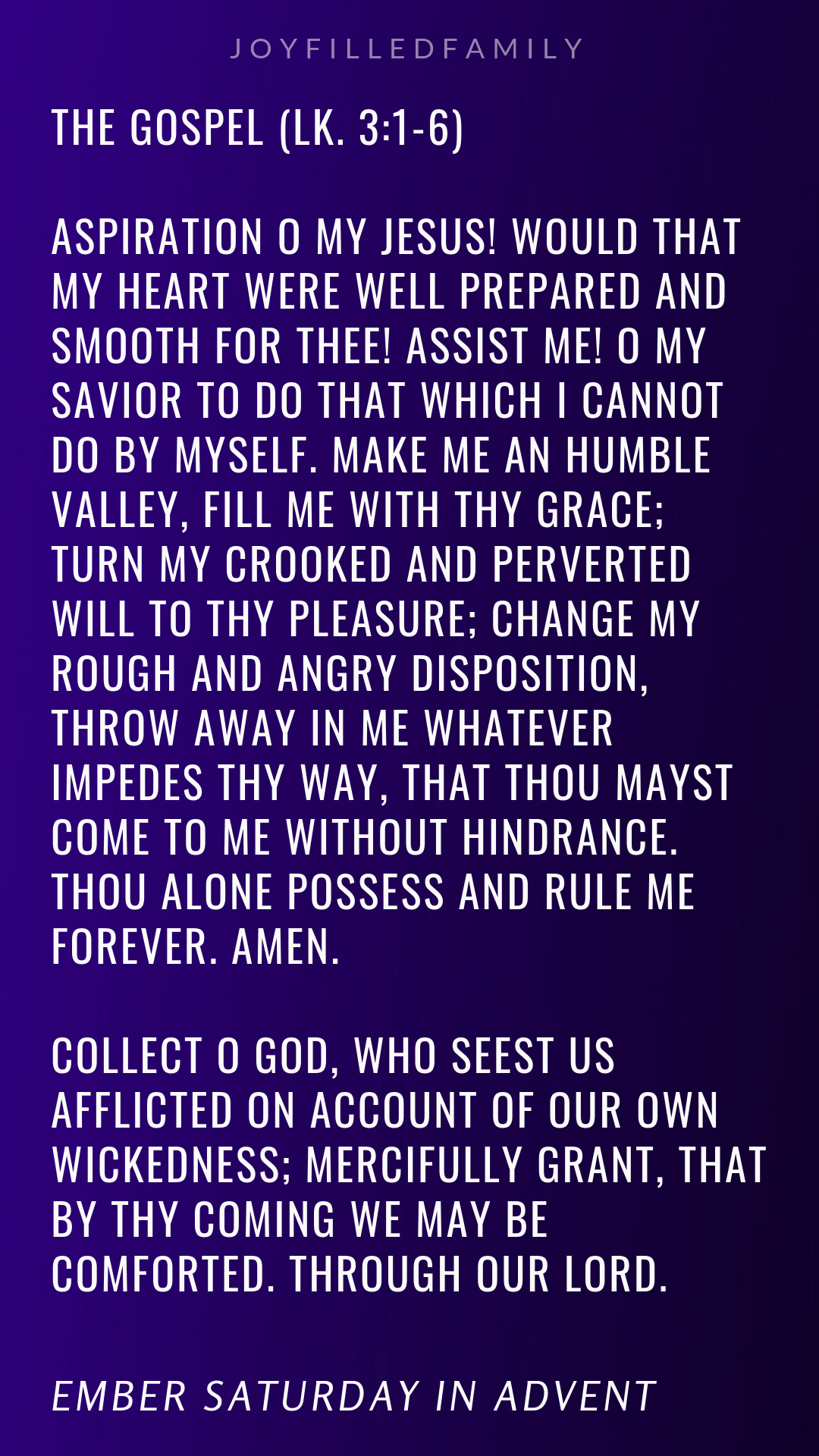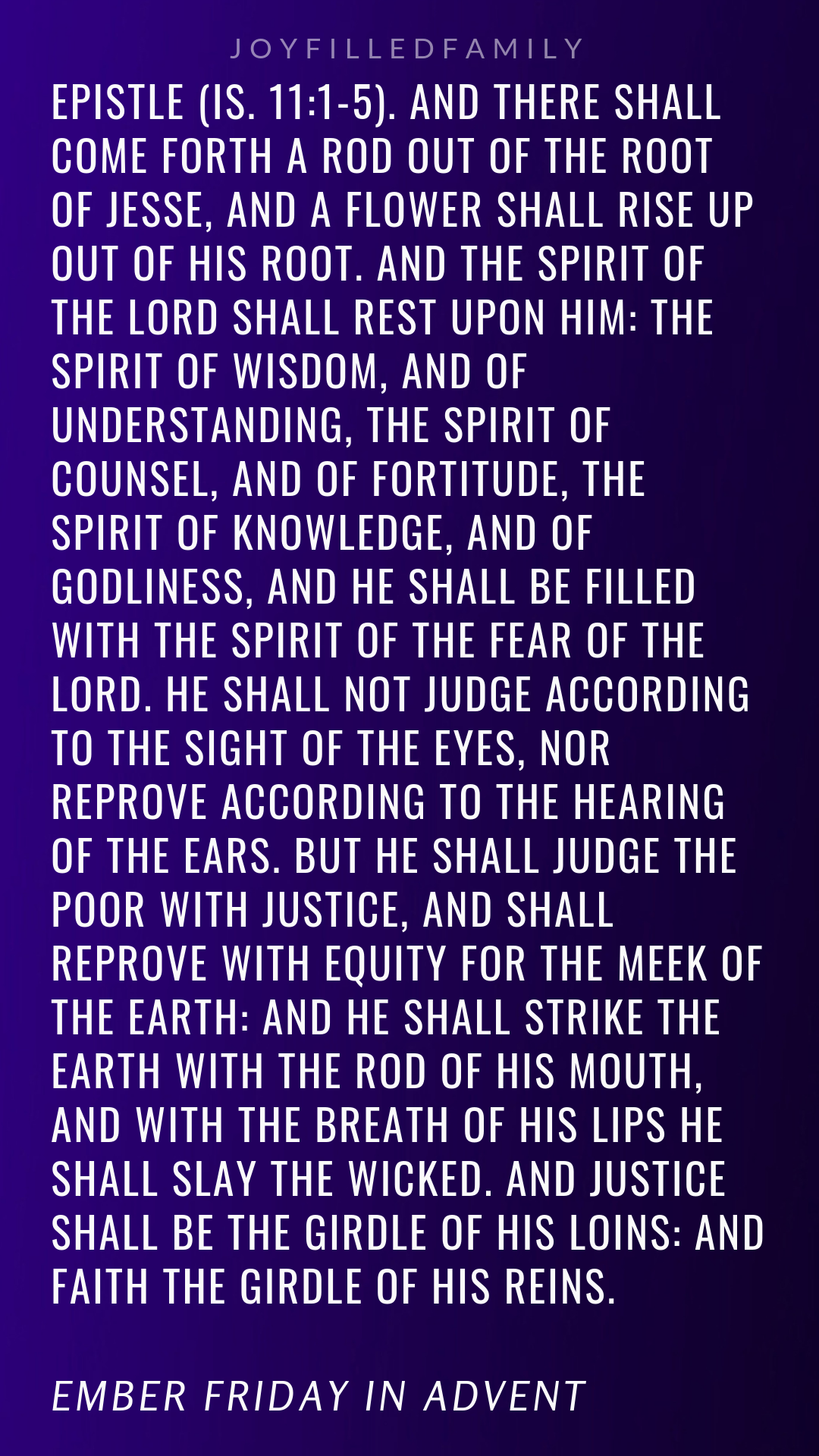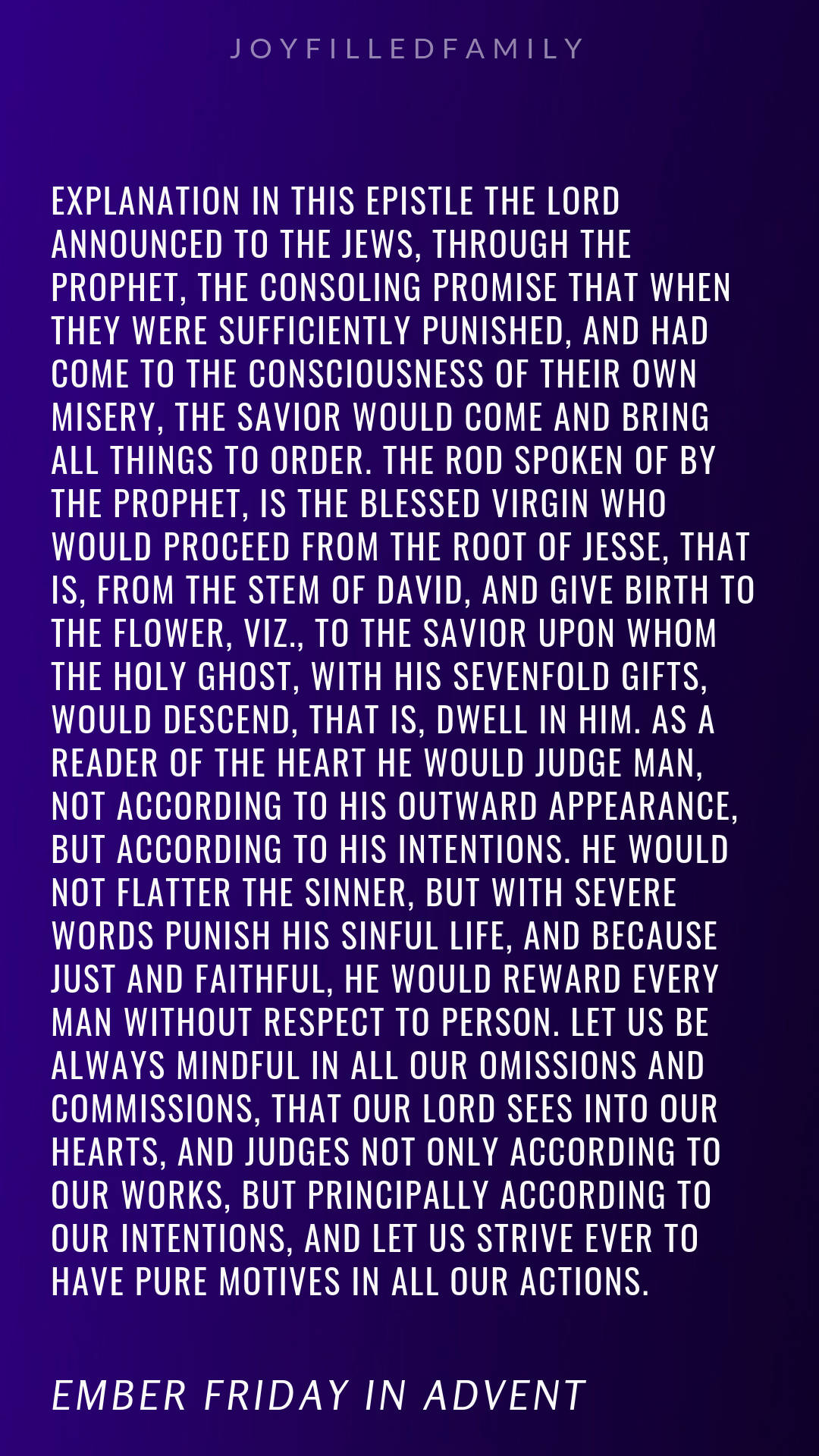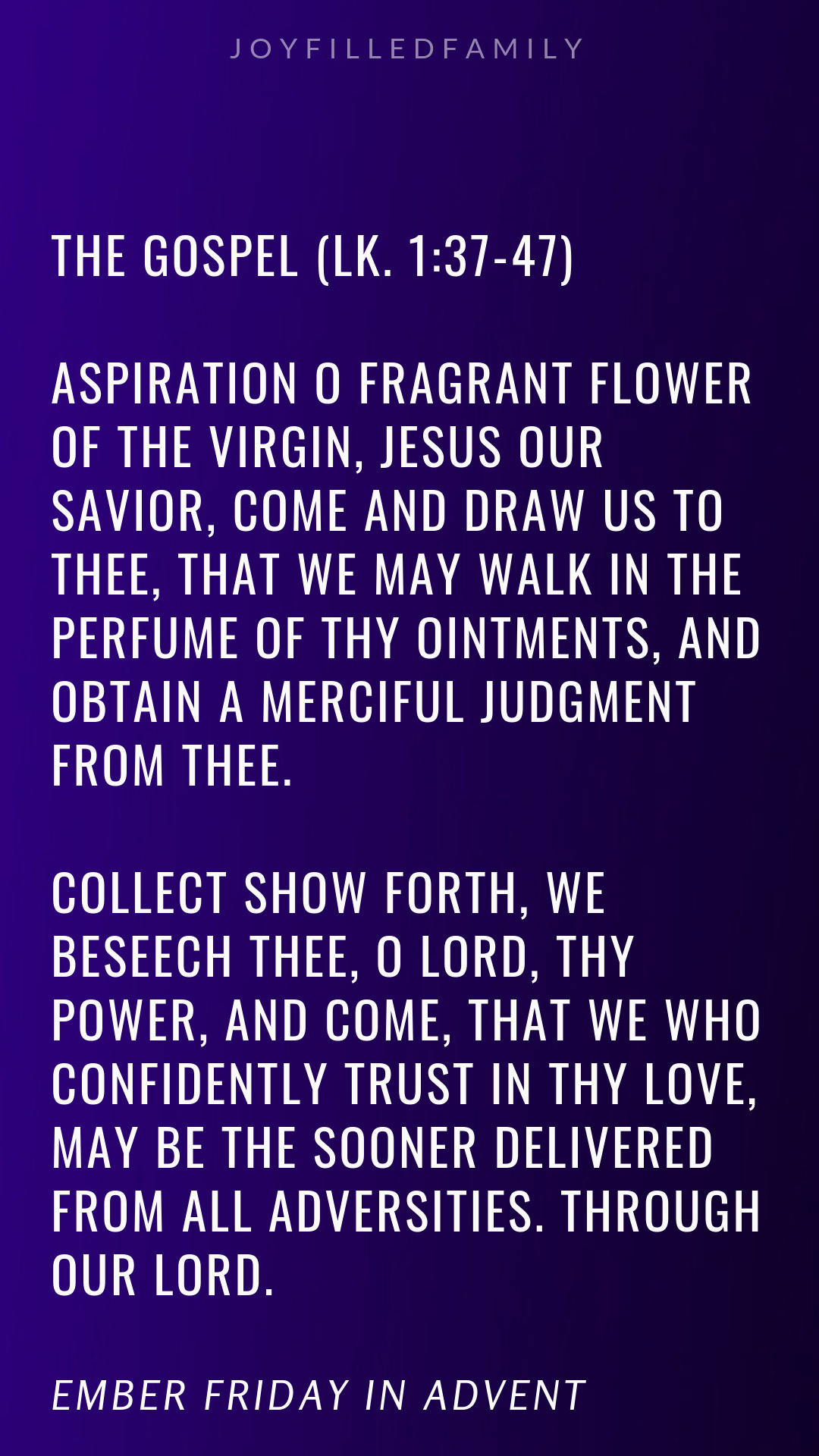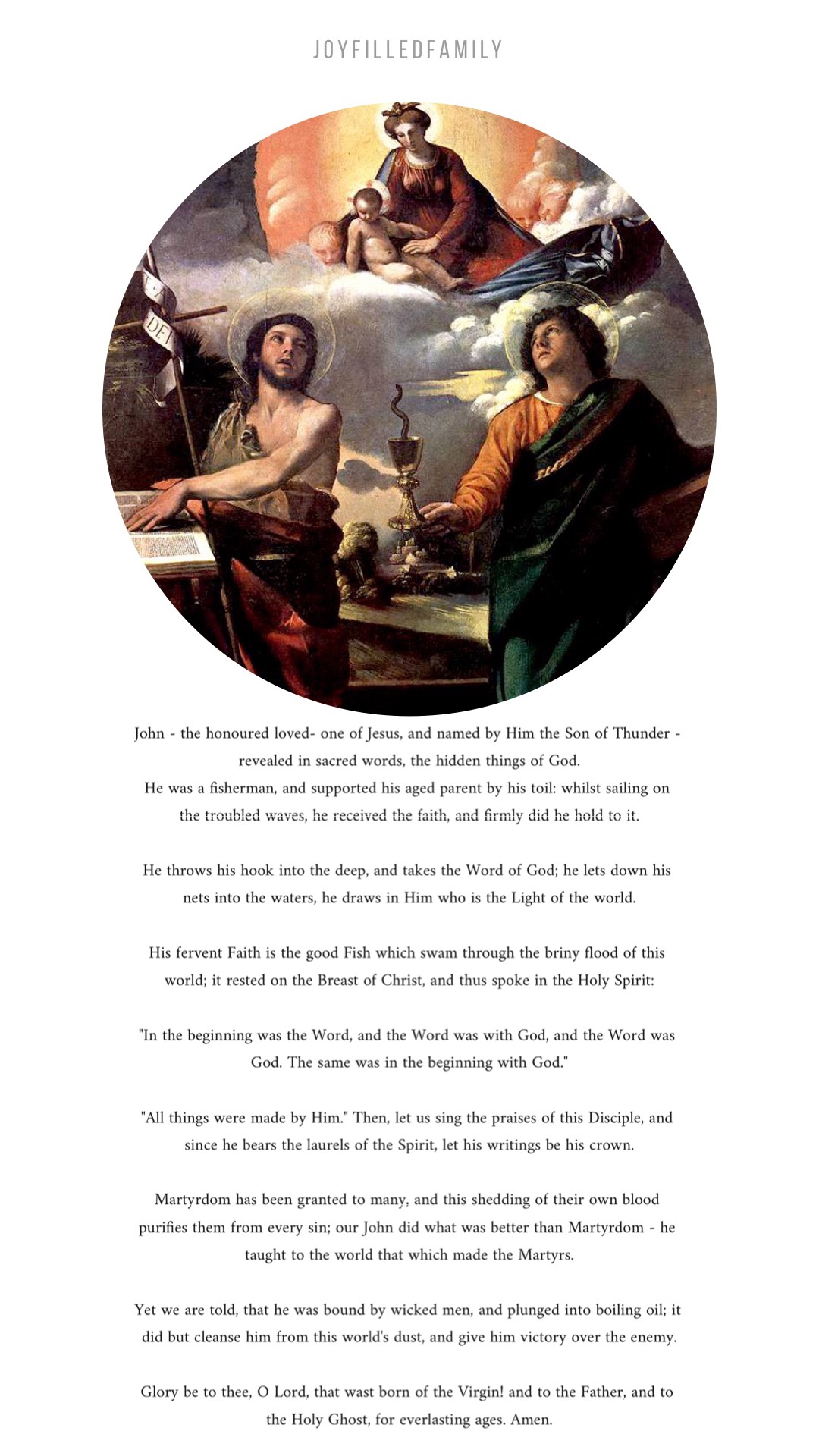
DECEMBER 27
SAINT JOHN, APOSTLE AND EVANGELIST
Dom Prosper Guéranger
Nearest to Jesus’ Crib, after Stephen, stands John, the Apostle and Evangelist. It was only right, that the first place should be assigned to him, who so loved his God, that he shed his blood in his service; for, as this God himself declares, greater love than this hath no man, that he lay down his life for his friends [1 John, 15:13] and Martyrdom has ever been counted, by the Church, as the greatest act of love, and as having, consequently, the power of remitting sins, like a second Baptism. But, next to the sacrifice of Blood, the noblest, the bravest, and which most wins the heart of Him who is the Spouse of souls, is the sacrifice of Virginity. Now, just as St. Stephen is looked upon as the type of Martyrs, St. John is honoured as the Prince of Virgins. Martyrdom won for Stephen the Crown and palm; Virginity merited for John most singular prerogatives, which, while they show how dear to God is holy Chastity, put this Disciple among those, who, by their dignity and influence, are above the rest of men.
St. John was of the family of David, as was our Blessed Lady. He was, consequently, a relation of Jesus. This same honour belonged to St. James the Greater, his Brother; as also to St. James the Less, and St Jude, both Sons of Alpheus. When our Saint was in the prime of his youth, he left, not only his boat and nets, not only has lather Zebedee, but even his betrothed, when everything was prepared for the marriage. He followed Jesus, and never once looked back. Hence, the special love which our Lord bore him. Others were Disciples or Apostles, John was the Friend, of Jesus. The cause of this our Lord’s partiality, was, as the Church tells us in the Liturgy, that John had offered his Virginity to the Man-God. Let us, on this his Feast, enumerate the graces and privileges that came to St. John from his being The Disciple whom Jesus loved.
This very expression of the Gospel, which the Evangelist repeats several times – The Disciple whom Jesus loved [John, 13:23, 19:26, 21:7, 21:20] – says more than any commentary could do. St. Peter, it is true was chosen by our Divine Lord, to be the Head of the Apostolic College, and the Rock whereon the Church was to be built: he, then, was honoured most; but St. John was loved most. Peter was bid to love more than the rest loved, and he was able to say, in answer to Jesus’ thrice repeated question, that he did love him in this highest way: and yet, notwithstanding, John was more loved by Jesus than was Peter himself, because his Virginity deserved this special mark of honour.
Chastity of soul and body brings him who possesses it into a sacred nearness and intimacy with God. Hence it was, that at the Last Supper – that Supper, which was to be renewed on our Altars, to the end of the world, in order to cure our spiritual infirmities, and give life to our souls – John was placed near to Jesus, nay, was permitted, as the tenderly loved Disciple, to lean his head upon the Breast of the Man-God. Then it was, that he was filled, and from their very Fountain, with Light and Love: it was both a recompense and a favour, and became the source of two signal graces, which make St. John an object of special reverence to the whole Church.
Divine wisdom wishing to make known to the world the Mystery of the Word, and commit to Scripture those profound secrets, ‘which, so far, no pen of mortal had been permitted to write – the task was put upon John. Peter had been crucified, Paul had been beheaded, and the rest of the Apostles had laid down their lives in testimony of the Truths they had been sent to preach to the world; John was the only one left in the Church. Heresy had already begun its blasphemies against the Apostolic Teach ings; it refused to admit the Incarnate Word as the Son of God, Consubstantial to the Father. John was asked by the Churches to speak, and he did so in language heavenly above measure. His Divine Master had reserved to this his Virgin-Disciple the honour of writing those sublime Mysteries, which the other Apostles had been commissioned only to teach – THE WORD WAS GOD, and this WORD WAS MADE FLESH for the salvation of mankind. Thus did our Evangelist soar, like the Eagle, up to the Divine Sun, and gaze upon Him with undazzled eye, because his heart and senses were pure, and there fore fitted for such vision of the uncreated Light. If Moses, after having conversed with God in the cloud, came from the divine interview with rays of miraculous light encircling his head: – how radiant must have been the face of St. John, which had rested on the very Heart of Jesus, in whom are hid all the treasures of wisdom and knowledge! [Col. 2:3] how sublime his writings! how divine his teaching! Hence, the symbol of the Eagle, shown to the Prophet Ezechiel, [Ezechiel 1:10, 10:14] and to St. John himself in his Revelations, [Apoc. 4:7] has been assigned to him by the Church: and to this title of The Eagle has been added, by universal tradition, the other beautiful name of Theologian, This was the first recompense given by Jesus to his Beloved John a profound penetration into divine Mysteries. The second was the imparting to him a most ardent charity, which was equally a grace consequent upon his angelic purity, for purity unburdens the soul from grovelling egotistic affections, and raises it to a chaste and generous love. John had treasured up in his heart the Discourses of his Master: he made them known to the Church, and especially that divine one of the Last Supper, wherein Jesus had poured forth his whole Soul to his own, whom he had always tenderly loved, but most so at the end [John, 13:1]. He wrote his Epistles, and Charity is his subject: God is Charity – he that loveth not, knoweth not God – perfect Charity casteth out fear – and so on throughout, always on Love. During the rest of his fife, even when so enfeebled by old age as not to be able to walk, he was for ever insisting upon all men loving each other, after the example of God, who had loved them and so loved them! Thus, he that had announced more clearly than the rest of the Apostles the divinity of the Incarnate Word, was by excellence the Apostle of that divine Charity, which Jesus came to enkindle upon the earth.
But, our Lord had a further gift to bestow, and it was sweetly appropriate to the Virgin-Disciple. When dying on his cross, Jesus left Mary upon this earth. Joseph had been dead now some years. Who, then, shall watch over his Mother? who is there worthy of the charge? Will Jesus send his Angels to protect and console her? – for, surely, what man could ever merit to be to her as a second Joseph? Looking down, he sees the Virgin-Disciple standing at the foot of the Cross: we know the rest, John is to be Mary’s Son – Mary is to be John’s Mother. Oh! wonderful Chastity, that wins from Jesus such an inheritance as this! Peter, says St. Peter Damian, shall have left to him the Church, the Mother of men; but John, shall receive Mary, the Mother of God, whom he will love as his own dearest Treasure, and to whom he will stand in Jesus’ stead; whilst Mary will tenderly love John, her Jesus’ Friend, as her Son.
Can we be surprised after this, that St John is looked upon by the Church as one of her greatest glories? He is a Relative of Jesus in the flesh; he is an Apostle, a Virgin, the Friend of the Divine Spouse, the Eagle, the Theologian, the Son of Mary; he is an Evangelist, by the history he has given of the Life of his Divine Master and Friend; he is a Sacred Writer, by the three Epistles he wrote under the inspiration of the Holy Ghost; he is a Prophet, by his mysterious Apocalypse, wherein are treasured the secrets of time and eternity. But, is he a Martyr? Yes, for if he did not complete his sacrifice, he drank the Chalice of Jesus [Matt. 20:22], when, after being cruelly scourged, he was thrown into a caldron of boiling oil, before the Latin Gate, at Rome. He was, therefore, a Martyr in desire and intention, though not in fact. If our Lord, wishing to prolong a life so dear to the Church, as well as to show how he loves and honours Virginity, – miraculously stayed the effects of the frightful punishment, St John had, on his part, unreservedly accepted Martyrdom.
Such is the companion of Stephen at the Crib, wherein lies our Infant Jesus. If the Protomartyr dazzles us with the robes he wears of the bright scarlet of his own blood – is not the virginal whiteness of John’s vestment fairer than the untrod snow? The spotless beauty of the Lilies of Mary’s adopted Son, and the bright vermilion of Stephen’s Roses – what is there more lovely than their union? Glory, then, be to our New-Born King, whose court is tapestried with such heaven-made colours as these! Yes, Bethlehem’s Stable is a very heaven on earth, and we have seen its transformation. First, we saw Mary and Joseph alone there – they were adoring Jesus in his Crib; then, immediately, there descended a heavenly host of Angels singing the wonderful Hymn; the Shepherds soon followed, the humble simple-hearted Shepherds; after these, entered Stephen the Crowned, and John the Beloved Disciple; and, even before there enters the pageant of the devout Magi, we shall have others coming in, and there will be, each day, grander glory in the Cave, and gladder joy in our hearts. Oh! this Birth of our Jesus! Humble as it seems, yet, how divine! What King or Emperor ever received, in his gilded cradle, honours like these shown to the Babe of Bethlehem? Let us unite our homage with that given him by these the favoured inmates of his court. Yesterday, the sight of the Palm in Stephen’s hand animated us, and we offered to our Jesus the promise of a stronger Faith: to-day, the Wreath, that decks the brow of the Beloved Disciple, breathes upon the Church the heavenly fragrance of Virginity – an intenser love of Purity must be our resolution, and our tribute to the Lamb.

A SIMPLE WAY TO CELEBRATE
Toast with wine (sparkling cider or grape juice for kids) before dinner.
Though he wasn’t martyred, it wasn’t for his enemies’ lack of trying. According to legend, he was served poisoned wine, but survived because he blessed the wine before he put it to his lips; the poison rose from the chalice in the shape of a serpent. In his happy memory, Catholics bring wine to church, which the priest blesses, turning it into a sacramental called the “Love of St. John.” Catholics use this sacramental wine for special occasions throughout the year and to give to the sick.
When it is drunk on his Feast Day, we drink it before dinner as a toast to St. John. The Father of the house lifts his glass toward Mother and says, “I drink you the love of St. John.” The Mother replies “I thank you for the Love of St. John” and then turns to the oldest child, lifts her glass, and says, “I drink you the love of St. John…” — and on it goes down the line until each has been toasted.
